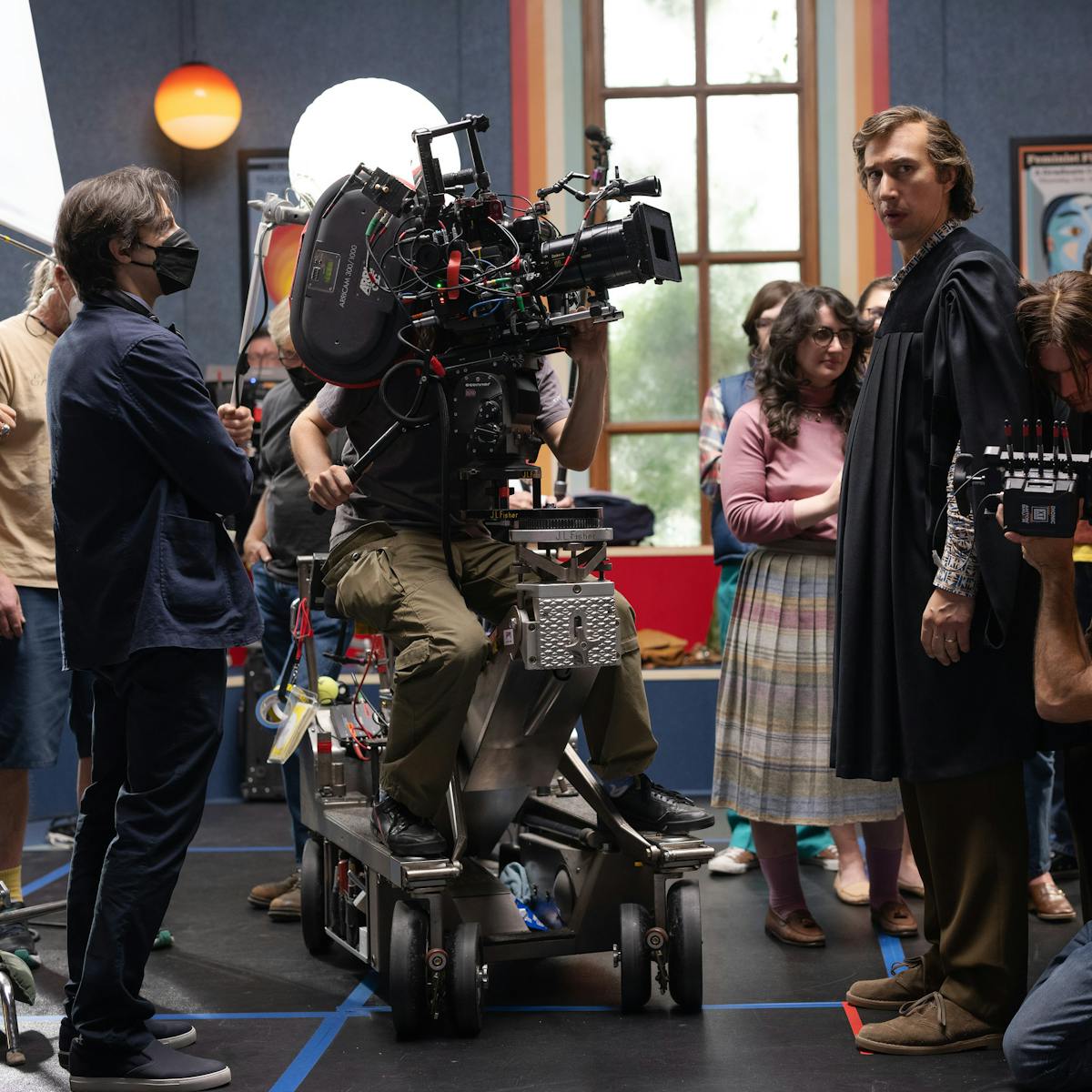LCD Soundsystem's first single in five years captures White Noise's rumination on life and death.
What better way to end Noah Baumbach’s White Noise, an adaptation of Don DeLillo’s rumination on life, death, and the fear of the in-between, than with a surprisingly upbeat, foot-tapping, and head-banging song about the afterlife?
As Brooklyn band LCD Soundsystem’s first single in five years, “new body rhumba” soundtracks the film’s transcendent epilogue, a finale dance number in the vein of Federico Fellini’s 8½ or Ingmar Bergman’s The Seventh Seal. “I essentially tasked [James Murphy] to ‘write an incredibly catchy song about death,’” Baumbach says. “The final scene is a dance of death and a dance of life. It’s a celebration of all that’s ending. Which is a celebration of all that is.”
Murphy, LCD Soundsystem’s front man, is a friend of Baumbach’s and had previously worked with the filmmaker on the scores for Greenberg and While We’re Young. “I like working with Noah,” Murphy says, “because the way I look at it is if Noah and I were in college and we lived on the same floor and he was making a movie and I had a little recording setup in my dorm room, I’d be like, Do you need some music? I can make some music for you.”
The challenge was to create a song that matched the unique tone of the film and fit in with Baumbach’s surreal 80s concoction without being too faithful to the period. “I didn’t want to do anything that was pastiche-y,” Murphy explains. “I didn’t want to do anything that was sounding like an 80s radio hit or using synthesizers in a particularly 80s way.” The result is a dancey rumination on the unsatisfactions of everyday existence, and its sweeping outro transforms into a mantra of letting go. “I feel like life and death and fear and feelings are too important to use cheap shorthand for,” says Murphy of his honest lyricism. “The two of us share that.”




